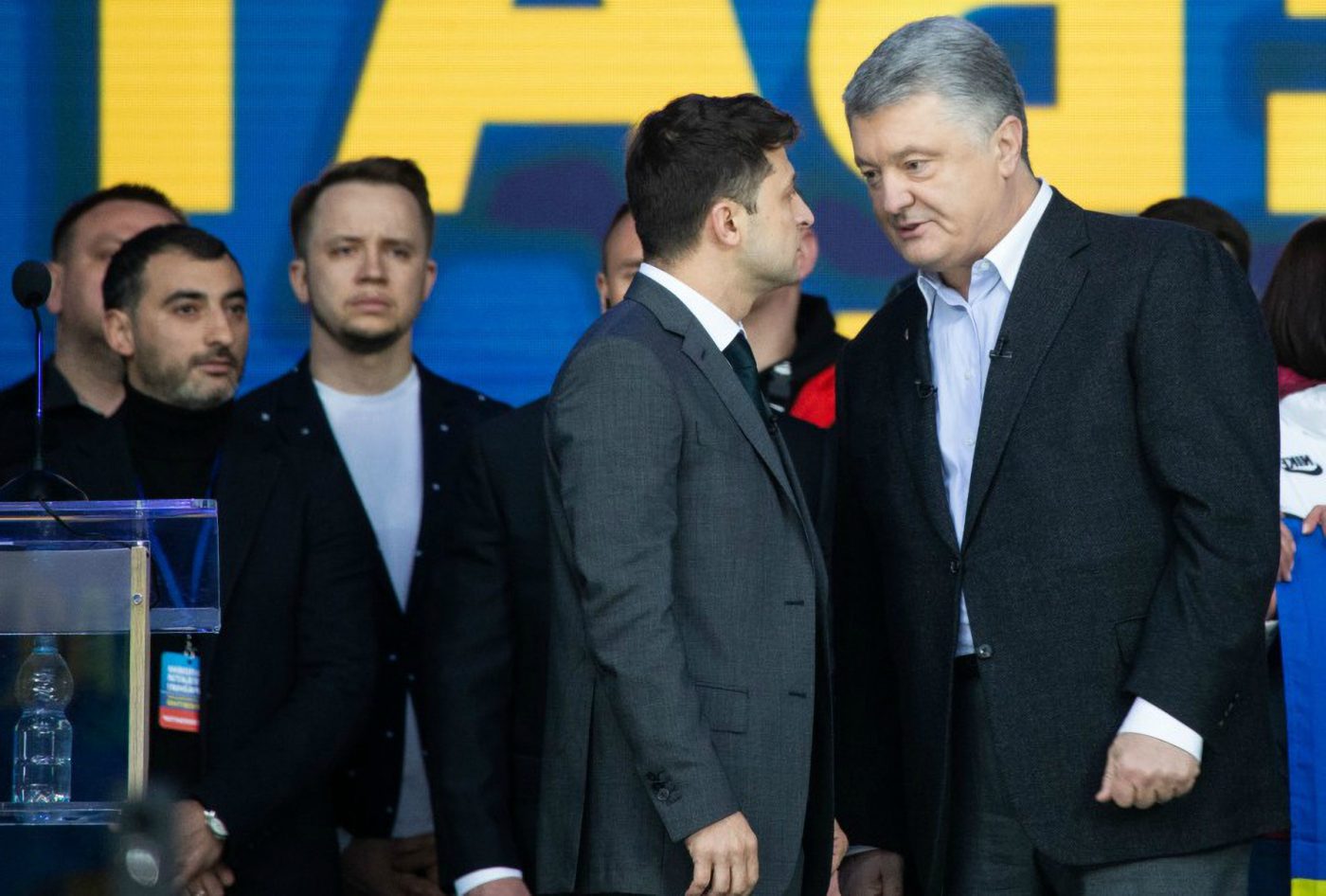Ukrainian democracy is healthy and vibrant.
Poroshenko is the fifth sitting president or handpicked successor of an incumbent to go down in defeat. Ukraine’s competitive and unpredictable elections stand in stark contrast to Russia’s political system, where any genuine political opposition is crushed and power is monopolized by interests close to the Kremlin.
The fact that Poroshenko fell victim to this trend in the midst of a war with Russia—and would not resort to falsification or other shenanigans to alter or annul the result—is indicative of how free and fair Ukrainian elections are and how demanding and impatient the Ukrainian electorate is. Nevertheless, even as it changes leaders, the broad direction of the country toward Euroatlantic institutions seems likely to continue. Ukraine’s Western partners have already indicated they will continue their support. But serious risks remain.
The ‘Russian World’ is dead.
The electoral map suggests that a bilingual civic Ukrainian nation appears to be coming of age—and this is bad news for Vladimir Putin’s ‘Russian World,’ the Kremlin claim that it can interfere in the internal affairs of its neighbors on the pretext of protecting their Russian-speaking minorities. A Russian speaker from central Ukraine, Zelenskiy, who is also Jewish, won strong majorities in every region of the country—including the heavily Ukrainian-speaking West. His victory exploded the Kremlin narrative that the Ukrainian government is controlled by anti-Semitic fascists. Nevertheless, Zelenskiy has some work to do to win over Ukrainian speakers. His spoken Ukrainian is poor and his humor has tended to poke fun at Ukrainian national culture.
Many Russians, moreover, have taken note of Ukraine’s choice and its implications for Putin’s rule. Russian liberal commentator Andrey Nikulin said after the Ukrainian presidential debate on 19 April that, “It looks like we are still in kindergarten and our neighbor is already a teenager and kissing girls.” Another pundit said he felt “jealous.”
There are still challenges ahead.
As the dust settles after the campaign, however, President-elect Zelenskiy faces several tests of leadership.
Zelenskiy himself has little political experience. He must show he can manage Ukraine’s rough and tumble politics, which are dominated by a handful of business oligarchs. His widely-reported ties to billionaire Ihor Kolomoysky, owner of PryvatBank, who has used his media holdings, which include 1+1 TV and UNIAN, to boost his candidacy, may make it politically impossible for him to deliver what the polls say Ukrainians want: a reformed economy and a fight against corruption.
Zelenskiy must prove himself as a war leader. Dealt a difficult hand following the Minsk ceasefire talks, Poroshenko nevertheless built up the Ukrainian armed forces, which effectively fought Russia to a draw in Donbas. Poroshenko resisted Moscow’s efforts to force the occupied territories of the Donbas back into Ukraine—as an effective Trojan Horse—on Russia’s terms. Thus the Kremlin is glad to see Poroshenko go but could test Zelenskiy’s resolve by targeted military action in eastern Ukraine. Moscow will almost certainly ratchet up its hybrid war activities. Some Russian commentators have suggested that recent statements by Zelenskiy and Kolomoysky suggesting their willingness to talk directly to Moscow-backed proxies in Luhansk and Donbas may provide a diplomatic opportunity to lock in Russian influence in that region in the negotiations and weaken the government in Kyiv.
With a new president poised to take office, the political action is likely to shift to the Rada, where elections are scheduled for October and Zelenskiy needs to bolster his support if he is to implement his campaign promises. The presidential election results are likely to spur a realignment of parties. Some Ukrainian politicians have also called for constitutional reforms that would transform Ukraine from a presidential to a parliamentary republic. At present, however, the powers of the Ukrainian presidency are largely over defense and security, with less direct responsibility for domestic policy. In this turmoil, the Kremlin could well renew its efforts to create a pro-Russian political coalition in Ukraine’s Russian-speaking southeast.
Europe’s Edge is CEPA’s online journal covering critical topics on the foreign policy docket across Europe and North America. All opinions are those of the author and do not necessarily represent the position or views of the institutions they represent or the Center for European Policy Analysis.





